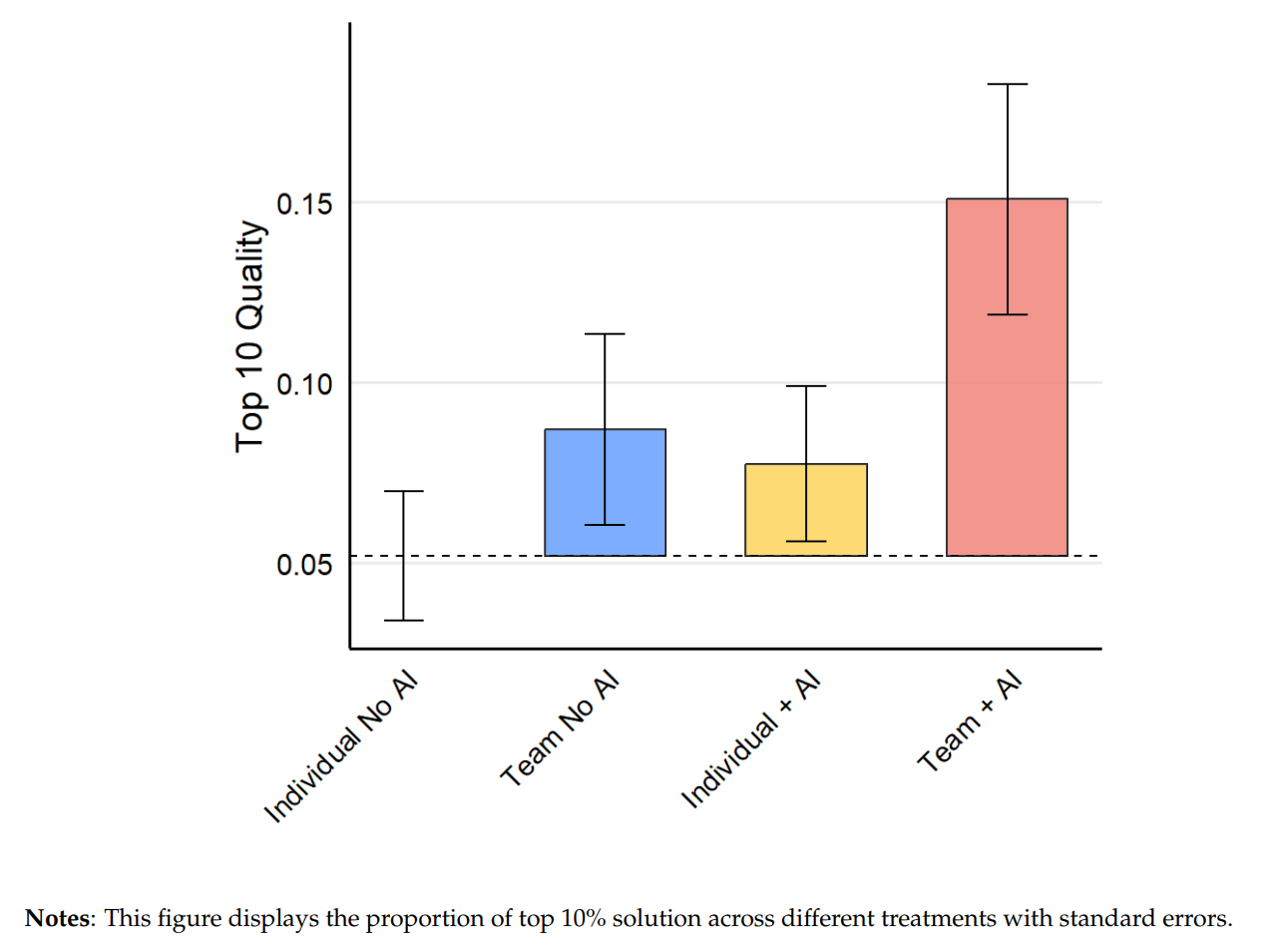Great cultures need to set workers free
ALSO: having an AI assistant is already as effective as having a team mate
This week’s reaction to ChatGPT’s new image tool reminded us just how polarised the AI debate has become. For those who aren’t terminally online and missed it, Open AI shipped an image generating tool that amongst other things allowed people to turn photographs into renderings by Studio Ghibli, Dr Seuss or whoever they chose.
While many found the results to be fun, others saw them as proof of AI’s creative emptiness. This is a view that reflects a wider, vocal camp online that sees all AI as corrosive or dangerous.
But amongst people who are open to what AI is set to achieve there is a different debate going on.
As artificial intelligence becomes more advanced, more capable and ubiquitous it raises the question of what will be the source of organisational edge? Until now the most highly prized asset was human talent, the bigger the brains on your side the better your chances. The war for talent was real, corporations scrambled to hire the cleverest graduates.
But if the advent of artificial general intelligence makes intelligence ubiquitous will agency, or more specifically human agency, the autonomy and agency of people, be the critical differentiator?
Let’s get a definition down: agency is taken to mean an individual's capacity to act independently and make choices that shape their own lives and have an impact on the world around them. This autonomy is often a big motivator for us in our jobs, but is often squeezed out by bureaucratic cultures.
This debate gathered some steam online last month amongst the AI circles. (Here, here and here for example.) I wouldn’t normally jump into this but it highlighted an interesting and important debate that will be meaningful for discussions about workplace culture. The discussion was which was more important for future success intelligence or agency?
If the boosters are right and AI tools gift more brain power to all of us, if each of us really is granted the power of a PhD level assistant what would determine the results of what would happen next?
What difference could agency have? Being in organisations that gifted us more agency would allow us to make judgment calls, take initiative, and apply a creative twist to our challenges. This could lead to humans driving the why and what of work (setting the goals and creative direction of work) and leaving the how of work, the execution details, to the machine.
Netflix was famous for asserting that it believed there was a trade off that happened as organisations got bigger. So fearful were huge corporations that employees would go rogue that they created rules, forms and processes to control them. But the end result of those systems was that firms got slower and more bogged down with procedure. Netflix Culture Document laid down their alternative, that employees would be granted ‘freedom and responsibility’ to have impact in their jobs.
This debate highlights a decision that organisations aren’t yet contemplating: how are we going to liberate our teams to move faster when brainpower is no longer the bottleneck to success?
In a world where intelligence is no longer scarce, how are we going to energise our cultures to gift more agency to our top workers?
How do we move faster, not through bigger brains but by unblocking initiative? How do we create cultures that free people up to maximise their impact?
I’m certain that most leaders aren’t preparing for this future that could be two or three years away.
Having an AI assistant doubles a worker’s output, proving as effective as having a real teammate according to new research by Ethan Mollick. The Wharton professor ran an experiment amongst almost 800 employees at packaged products manufacturer P&G. Employees with an average of 10 years of experience were allocated to random conditions: some working alone, some with a teammate, some with Open AI’s GPT-4o. Everyone given the AI assistant was trained on how to get the best value from it. Workers working with AI were as effective as those working with a tenured colleague. An average a person with AI achieved as much as a two person team. The very best quality work was achieved by teams with AI (shown in the graph below). Chat GPT also helped workers to break down traditional silos with areas that weren’t their typical expertise. Listen to Notebook LM talk about the research and its implications for your organisation (this is a good listen and a very good way to consume the research)
Half of Gen Z have pretended to be busy to impress their bosses and would ‘sever their work lives’ from their real lives if they could
‘The layoff fundamentally changed how I perceive work now. I don’t think that I’ll be the same person again.’ ‘Some employees worked out they’d been fired by receiving a DHL notification’ (to return their laptops) - this blogpost gives a first person account of how dehumanising the redundancy process has become in many firms
“We need you to work nights and weekends…if you are not willing to push hard in this really critical phase you don’t deserve to be at 11x” - AI start-up 11x had a toxic culture that demanded 80 hour weeks
I love seeing discussion of workplace culture in unusual places, here’s icon du jour Stephen Graham talking about the crew of Adolescence needing to be in sync with each other to create their magic
More workplace culture anecdotes, this time around tennis. Emma Raducanu is having her best run of form in 4 years and ascribes some of her renewed love of the game with having fun in training with her coaching team (including Mark Petchey)
I forgot to post this last week, but I reviewed Careless People, a new tell-all memoir about Facebook/Meta’s culture, for the Financial Times (archive link)
We’re on a pretty grim timeline right now: the body that approves mergers in the US has said it won’t permit any takeovers from firms who have a DEI policy
Google’s culture meant that ‘thousands of people could veto a product but no one could approve one’, how did they shift that to play catch-up with Open AI?







Finally someone dares to say the TRUTH
Empowering workers with autonomy and trust is key to building a thriving culture. Loved the insights on creating an environment where people can truly excel!